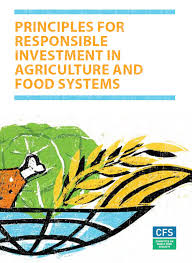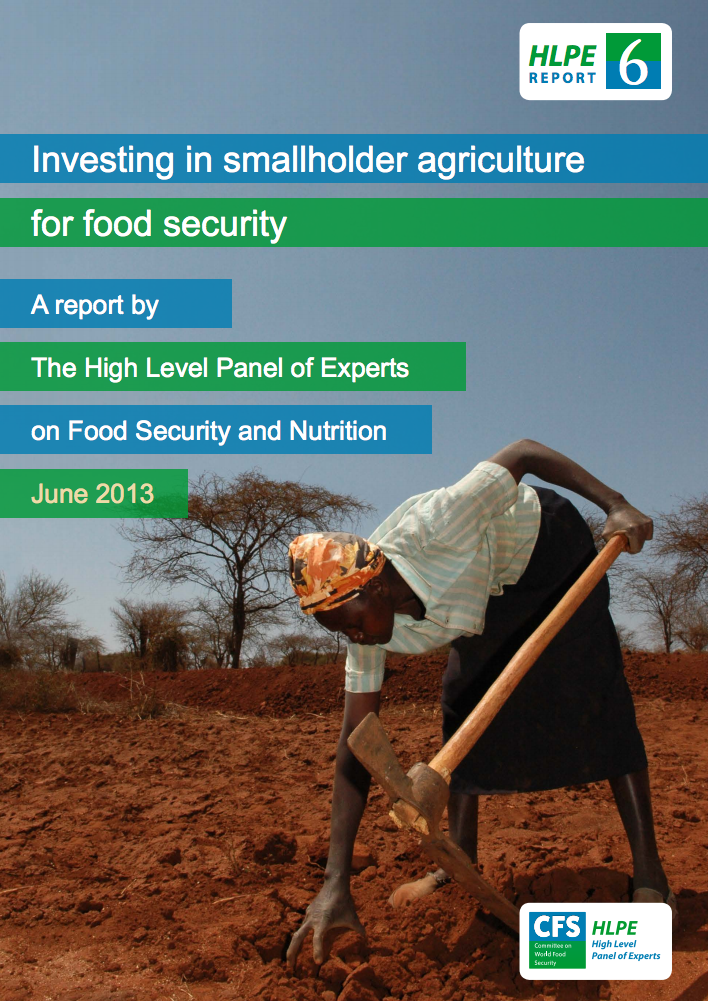The Committee on World Food Security (CFS) was set up in 1974 as an intergovernmental body to serve as a forum for review and follow up of food security policies. In 2009 the Committee went through a reform process to ensure that the voices of other stakeholders were heard in the global debate on food security and nutrition. The vision of the reformed CFS is to be the most inclusive international and intergovernmental platform for all stakeholders to work together in a coordinated way to ensure food security and nutrition for all. CFS was reformed to address short term crises but also long term structural issues. The Committee reports annually to Economic and Social Council of the United Nations (ECOSOC).
Who is part of CFS?
CFS is made up of Members, Participants and Observers. The membership of the Committee is open to all Member States of The Food and Agricultural Organization (FAO), The International Fund for Agricultural Development (IFAD) or The World Food Programme (WFP) and non-Member States of FAO that are Member States of the United Nations. Member States are encouraged to participate in CFS sessions at the highest level possible. Participants can be from representatives of UN agencies and bodies, civil society and non-governmental organizations and their networks, international agricultural research systems, international and regional financial institutions and representatives of private sector associations and private philanthropic foundations. CFS may invite other interested organizations relevant to its work to observe entire sessions or specific agenda items.
The High Level Panel of Experts on Food Security and Nutrition (HLPE) was created in October 2009 as an essential part of the CFS reform to provide independent, scientific knowledge-based analysis and advice. HLPE reports are requested by CFS and their findings and recommendations serve as a basis for CFS policy discussions.
Resources
Displaying 6 - 9 of 9Compilation of experiences and good practices in the use and application of the Voluntary Guidelines on the Responsible Governance of Tenure of Land, Fisheries and Forests in the Context of National Food Security
This document gathers a number of case studies on the use and application of the Voluntary Guidelines on the Responsible Governance of Tenure (VGGT) in a wide range of projects, and highlights successes in these experiences. For each project, it includes a description of and information on the approach adopted, and provides additonal resources for stakeholders interested in learning more about these projects.
Responsible Investment in Agriculture and Food Systems
The CFS Principles for Responsible Investment in Agriculture and Food Systems – known as RAI – are a set of ten principles that apply to all types and sizes of agricultural investment including fisheries, forests and livestock. They address all stakeholders and apply to all stages of the value chain. As a soft law instrument they are globally applicable and include actions to address a range of environmental, social and economic issues.
Investing in Smallholder Agriculture for Food Security
In October 2011, the Committee on World Food Security (CFS) requested the High Level Panel of Experts (HLPE) to prepare "a comparative study of constraints to smallholder investment in agriculture in different contexts with policy options for addressing these constraints, taking into consideration the work done on this topic by IFAD, and by FAO in the context of COAG, and the work of other key partners.
The State of Food and Agriculture
More than at any time in the past three decades, the world’s attention is focused this year on food and agriculture. A variety of factors have combined to raise food prices to the highest levels since the 1970 (in real terms), with serious implications for food security among poor populations around the world.






